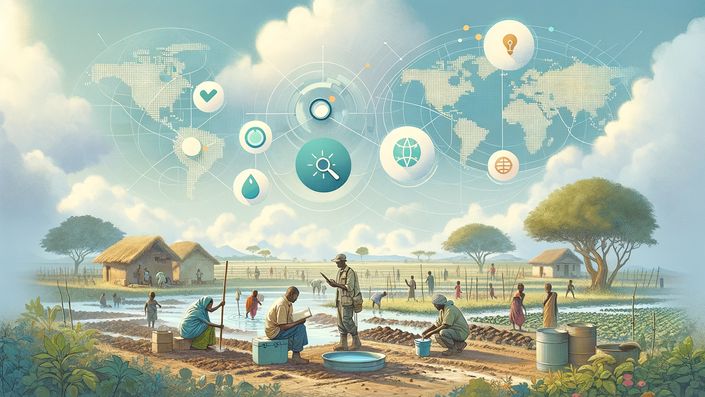
Monitoring, Evaluation, Accountability, and Learning (MEAL)
Track progress, demonstrate impact, and ensure accountability through effective data collection and analysis systems. Online certificate course.
Self-Study Certificate Course
Start: Immediate Access
Time: Around 12 hours to complete
Measuring What Matters in Humanitarian Work
In humanitarian and development work, projects can fail to demonstrate their impact—not because they lack results, but because they can't measure or communicate them effectively. Without strong MEAL systems, projects face:
- Missed opportunities to adapt and improve programs in real-time
- Inability to prove project impact to donors and stakeholders
- Accountability gaps that erode community trust
- Repeated mistakes when lessons learned are missed
This practical training equips you with tools to design and embed MEAL systems that monitor progress, capture results, communicate transparently with stakeholders, and capture lessons learned. Develop your data collection and analysis skills, and learn to create feedback mechanisms that drive adaptive management and put communities at the center. Through effective MEAL implementation, you can:
- Adapt programs based on real-time data and feedback
- Make evidence-based decisions that improve outcomes
- Demonstrate clear impact to communities and donors
- Build trust through transparent accountability mechanisms
- Capture and share learning across teams and projects
How You'll Learn
This self-paced course combines video lessons, practical exercises, and assessments:
- Video presentations with downloadable transcripts and handouts
- Practical templates and tasks for immediate application
- Reflection exercises to adapt concepts to your context
- End-of-module knowledge checks
- Certificate upon completion
Course developed and presented by Neil Kendrick, founder of ELD Impact, with 25+ years of experience training humanitarian professionals across 20+ countries
Program Overview
Click any module to see content
- Getting Started
- Pre-Course Self-Assessment: Rate Your Current Skills
- The What and Why of MEAL
- MEAL in Action
- Reflection Task
- Integrating MEAL into Project Design
- MEAL during Implementation and Close-out
- MEAL and Sustainability
- The MEAL Framework
- Progress Assessment
- Reflection & Application
- Understanding Monitoring Systems in MEAL
- Indicators
- Data Collection Methods in MEAL
- Developing a Monitoring Plan
- Data Collection Tools in Humanitarian and Development Projects
- Case Study and Practical Exercise
- Data Management
- Data Analysis
- Data Visualisation
- Case Study - Data Management in Action
- Case Study - Data Quality and Integrity
- Data-driven Decision-making
- Progress Assessment
- Reflection & Application
- Types of Evaluation in the Project Lifecycle
- Evaluation Ethics and Standards
- Planning and Designing Evaluations
- Case Studies - Reflection and Application - Evaluation Checklist
- Steps for Conducting Evaluations
- Defining Evaluation Questions
- Selecting Data Collection Methods
- Selecting Sampling Approaches
- Data Analysis in Evaluations
- Linking Data Analysis to MEAL
- Reporting Evaluation Findings
- Evaluation in Action - Case Study
- Progress Assessment
- Reflection & Application
- Accountability in MEAL
- The Cycle of Accountability
- Understanding Stakeholder Expectations
- Feedback and Complaint Mechanisms
- Ensuring Transparency
- Ensuring Participation
- Implementing Feedback Mechanisms in Humanitarian Response - A Case Study
- Progress Assessment
- Reflection & Application
- Why Learning Matters in MEAL
- Learning Frameworks and Approaches
- Capturing and Sharing Lessons Learned
- Learning from Evaluations: A Case Study
- Adaptive Management in MEAL
- Adaptive Management Techniques
- Real-time Data and Decision-making
- Case Study and Reflection
- Progress Assessment
- Reflection & Application
- Practical Application and Case Studies
- Key Concepts of MEAL
- Final Self-Assessment: Reflect on Your Progress
- Reflection and Action Planning
- Course Discussion Forum
- Your Next Steps
Want to try before purchasing? Access this course and 9 others in the Academy. Individual subscriptions $29/month—cancel anytime. Go to Academy →
